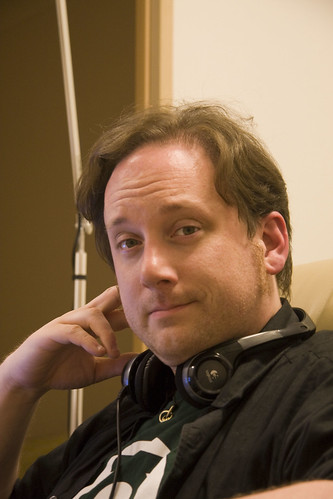
The Doomsday Book by Connie Willis
I honestly can't count the number of times I've read this book. I think this is the fifth time. Or maybe the sixth, I don't know. It doesn't really matter, because it's just as enjoyable, touching and heartbreaking as it was the first time I read it, and that's a hell of an accomplishment.
It is the middle of the 21st century and time travel has finally been worked out. A reliable there-and-back-again way to go into the past and come back to the present. Unfortunately, there are limitations. The computer that makes time travel happen, through means I'm not sure even Ms. Willis understands, will not allow for a paradox. This means if you try to go to the past with anachronistic technology, or carrying a disease that could wreak havoc on the population, the interface simply won't open. If you try to place a traveler somewhere where their appearance could cause a paradox, the machine will put them in another place or time - a factor called "slippage" which can put you anywhere from five minutes and a few feet off your mark to years and miles. The machine won't allow you to get anywhere near events of importance.
Secondly, the machine won't allow you to take anything through the net. So if you travel to, say, Napoleon's palace and try to rob him blind, the interface won't open until you've got rid of all your booty.
Those two factors alone made the time machine economically useless. If you can't profit off it - or change it - what good must it be?
A lot of good, as it turns out, if you're an historian. While the machine may not allow you to get anywhere near Hitler, it will allow you to see what life was like in the ghetto in the 30s. The whole of history suddenly became open to real discovery, and places like Oxford were at the forefront of the research.
One student, a young lady named Kivrin, has a dream to see the Middle Ages. Despite all the warnings that it was full of filth, disease, superstition, danger and death, she still wants to see it more than anything in the world. The sheer force of her will finds her in the machine, ready to go to the year 1320 to see firsthand what life was like for the average English citizen. She has prepared herself as best she could, but nothing could possibly prepare her for the time and place she ends up in....
And in the present, a new plague has spread around Oxford. It's a new type of flu that seems to have come from nowhere, and it's started to kill. Kivrin's teachers and friends have to race the disease, time and sheer bloody-minded bureaucracy to try and find her and bring her back safely.
What is remarkable about the book is the detail. Willis has obviously done a lot of research into not only Medieval Oxford but modern Oxford as well. Since one of the themes of the book is that we don't know nearly as much about the past as we think we do, Willis has gone to great lengths to make sure that we - through the eyes of Kivrin - never know what to expect because our expectations are all totally wrong. And as is so often true about history, the more we know about it, the more interesting it becomes.
The Oxford of the future, by contrast, isn't all that futuristic. It looks a lot like the modern world, probably because it's only a couple of decades removed from us. Sure, there have been advances in technology, but the lives of the people aren't much different from ours.
Interesting note: the book was published in 1992, well before the age of cell phones, instant messaging and the internet. Because of this, one of the greatest hindrances to getting anything done in this far-future Oxford is that no one can get anyone on the phone. It's a videophone, yes, but most of the characters spend time waiting for phone calls to come through or trying to place calls to people who aren't near a terminal. It's a bit strange, from my modern perspective, to see a world that has pretty much conquered disease and mastered time yet never figured out a means of personal communication better than a land-line.
That's just a small thing, though, and as long as you accept that particular bit of alternate-future, you'll be okay. It's a fantastic book, one which I recommend without reservation. The characters are deep and interesting, and the writing really puts you in their world. Seriously. Go get it.
----------------------------------------------
"Mr. Dunworthy, ad adjuvandum me festina."
("Mr. Dunworthy, make haste to help me.")
- Kivrin, The Doomsday Book
----------------------------------------------
The Doomsday Book on Wikipedia
Connie Willis on Wikipedia
The Doomsday Book on Amazon.com
The 11th-Century Domesday Book at Wikipedia
The Domesday Book online




